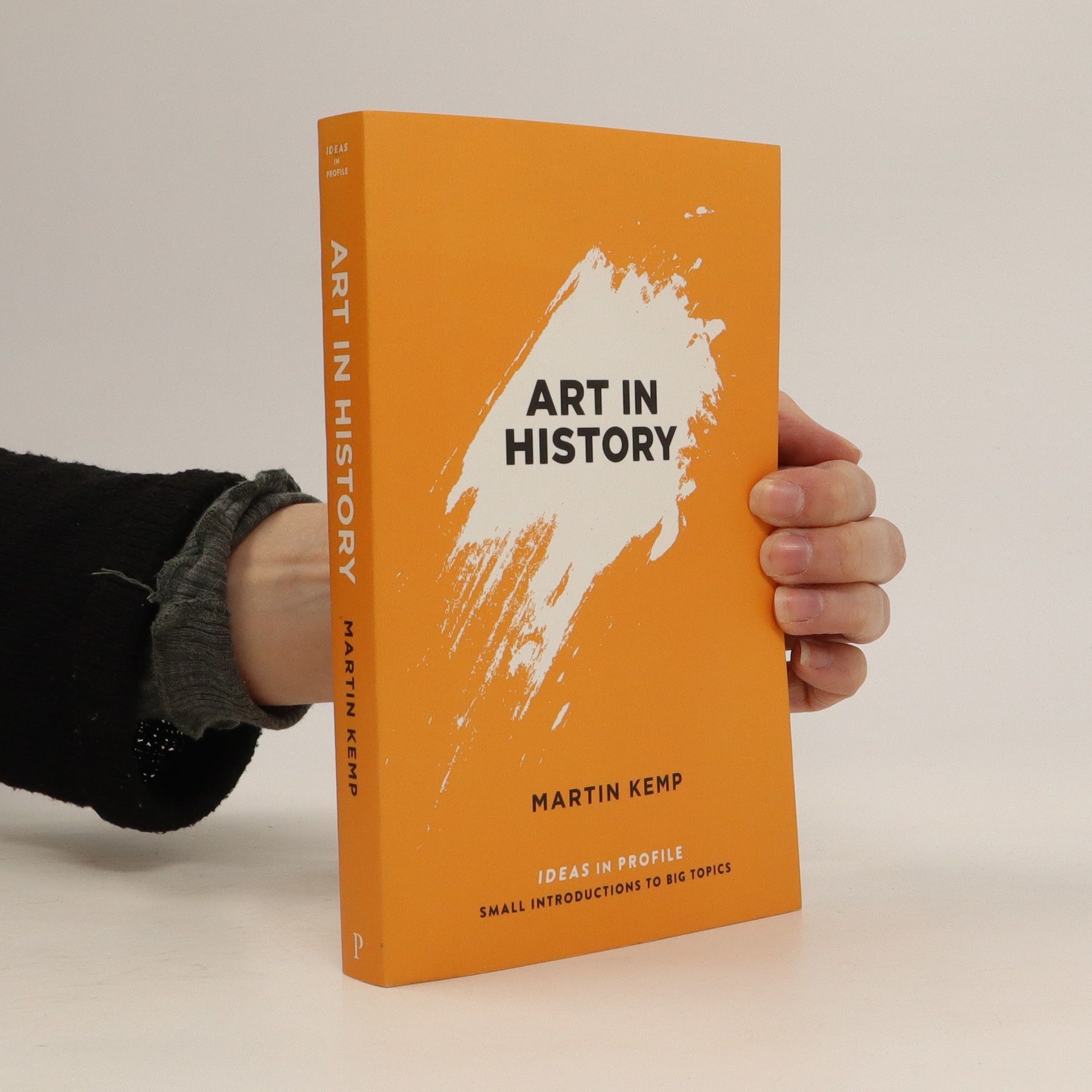Criticism
- 176 pages
- 7 hours of reading
The next introduction in the IDEAS IN PROFILE series: a snappy but serious introduction to criticism
This series delves into the lives and minds of history's most influential thinkers and artists. Each volume offers a compelling portrait of a key figure, exploring their work, legacy, and impact on the world. It's a fascinating journey into the intellectual and creative currents that have shaped our civilization. Ideal for readers seeking a deeper understanding of the pivotal individuals who pushed the boundaries of thought and creation.






The next introduction in the IDEAS IN PROFILE series: a snappy but serious introduction to criticism
An essential exploration of our greatest writer
When we look at a painting by Raphael, Rembrandt, or Rubens it speaks to us directly, but it's also an historical document, part of a living world. Martin Kemp takes the reader on an extraordinary trip through art, from devotional works to the revolutionary techniques of the Renaissance, from the courtly Masters of the seventeenth century through to the daring avant-garde of the twentieth century and beyond. Art In History is an indispensable, accessible and richly detailed guide to our culture, our history, our heritage, and our art
'Feminism' wrote Marie Shear in 1986, 'is the radical notion that women are people'. But, simple and powerful though this definition is, feminism is not a single, clear narrative. It doesn't begin with a specific event at a particular moment in time, it can't be identified with any one political organization or movement, and it isn't defined by the contributions of a handful of great thinkers.Here, Professor Deborah Cameron unpicks the various strands that constitute one of history's most important intellectual and political movements. In her clear and incisive account, she discusses oppression, sexuality, violence, academic theory and practical activism, shows how feminism can be a way of viewing the world and provides an overview of its history.In an era of #metoo, pay gap scandals and online harrassment, it's impossible to deny that gender inequality is a fact of life. And as long as that continues to be true, we will need to understand and engage with the ideas and history of the feminist movement.
Social theory lets us understand the full complexity of the world we live - this book explains how.
Ideas in Small Introductions to Big TopicsThis introduction to the ancient world, part of the Ideas in Profile series, covers all its different cultures, from the million people crammed into Rome to the Jews and Syrians who refused to be Romanised. Jerry Toner shows what can be learnt from new approaches to ancient history, from analysing the bones of the dead in Pompeii or assessing the impact of environmental change, and considers how we can discover what it was like to live back then. He looks at every period, not just classical Athens and Republican Rome, but the Hellenistic kingdoms that followed Alexander and the Christian-dominated later Roman Empire. Greece and Rome, he argues, must be fitted into the global history of their what did Persians think of Greeks and how does the Roman empire stack up to China's?With vivid examples and animation from award-winning Cognitive at every stage, this is the ideal introduction to the ancient world for general readers and students.
The world's leading thinker on truth explains what it is and why it matters in every important aspect of life
In the first title of an exciting new series one of the world's leading political scientists asks the big questions about politics: what is it, why we do we need it and where, in these turbulent times, is it heading? From the gap between rich and poor to the impact of social media, via Machiavelli, Hobbes and Weber, Runciman's comprehensive short introduction is invaluable to those studying politics or those who want to know how life in Denmark became more comfortable than in Syria.Fusing animation and images from the award winning animators behind RSA Animates, beautifully adapted to both print and digital formats, the Ideas in Profile series boldly reinvents what introductions can and should be in the twenty-first century. Concise, clear, relevant, entertaining, original and global in scope, Politics makes essential reading - and viewing for students and general readers.
Roger Scruton looks at the central ideas of conservatism over the centuries. He examines conservative thinking on civil society, the rule of law and the role of the state on the one hand; and freedom (including freedom of expression and association), morality, equality, property and rights on the other. He traces the origins and development of the conservative ideology in the philosophies and thoughts of, among others, John Locke, Thomas Hobbes, David Hume, Edmund Burke, Adam Smith, John Stuart Mill, John Ruskin, Michael Oakeshott, Friedrich Hayek, Milton Friedman and Robert Nozick. He shows how conservative ideas have worked out in the politics and policies of leading figures people such as Thomas Jefferson, Benjamin Disraeli, the Earl of Salisbury, Calvin Coolidge, Winston Churchill, Ronald Reagan and Margaret Thatcher. He also looks closely at the degree to which capitalism and free markets have been, and are integral to, conservative ideology and politics in the UK and in the USA. Professor Scruton's clear, incisive guide is essential reading for anyone wishing to understand the politics and policies of the west now and over the last three centuries.
A clear and accessible introduction to geography by two experts in the topic, part of the Ideas in Profile series